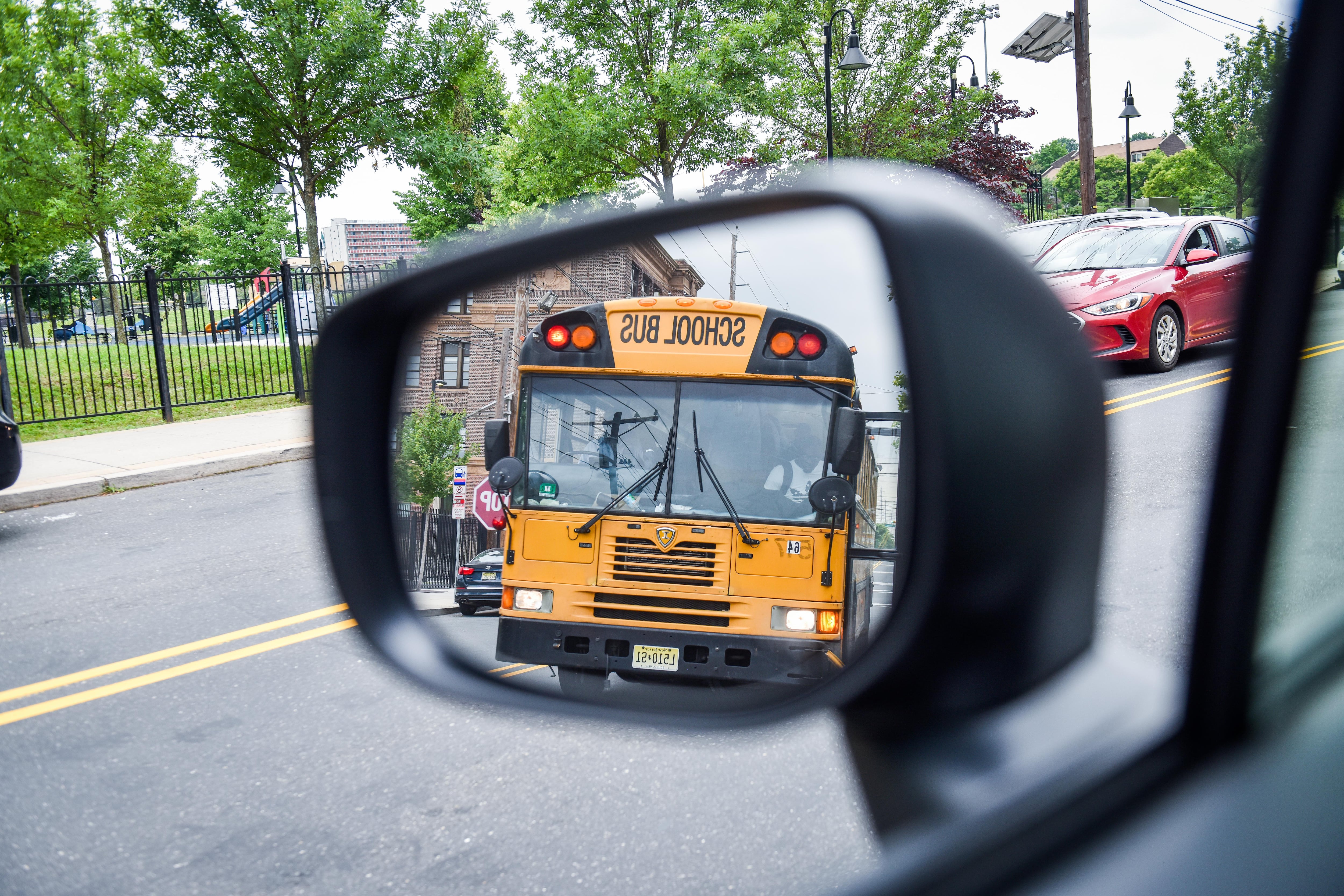Sign up for Chalkbeat Newark’s free newsletter to keep up with the city’s public school system.
Newark Public Schools is one of five New Jersey districts slated to receive electric buses through a federal grant from the Environmental Protection Agency.
Through the agency’s Clean School Bus Program, Newark, the state’s largest school district, will get six electric buses to service some of the city’s roughly 126 routes to public schools. Bloomfield Township, Elizabeth, Lakewood Township, and Union City will also receive funding through the $19 million award.
The new funding comes after the Newark Board of Education announced an increase in student transportation costs included in its $1.3 billion budget in 2023. Federal, state, and local leaders say the new grant will help provide cleaner air and reduce health risks in communities, especially for children with respiratory problems like asthma.
“There is still a lot of work to make Newark the most environmentally friendly and equitable city it can be,” Carlos Vega, public information officer for the EPA, said last week in response to emailed questions from Chalkbeat.
Transportation is the largest source of greenhouse gas emissions in New Jersey, making up 37% of all emissions, according to the state’s Department of Environmental Protection. In Newark, residents often experience air quality levels higher in pollutants than other areas throughout the state and country. The city is home to several major roads and is near major highways, the Newark-Elizabeth Marine Port, factories, and an international airport that contribute to unhealthy air quality levels, according to the EPA.
One in every four children in Newark suffers from asthma — three times the state average — and asthma is a leading cause of students missing school, according to an EPA study monitoring air quality in the area. In 2019, Superintendent Roger León named asthma as one of four health issues that hinder student achievement.
The $19 million grant will be awarded to the private transportation company Van-Con, Inc., which will purchase and distribute the electric buses. These buses produce lower tailpipe emissions compared with traditional school buses that run and emit more pollutants, according to the EPA.
Newark will receive $2,667,222 to cover the costs of six electric buses and $180,000 for bus charger installation costs. The district will receive the buses within the next year and Van-Con must provide semi-annual reports to the EPA for all school districts awarded in New Jersey.
In 2023, the Newark Board of Education said it spent just over $7 million on a contract with 20 transportation companies to service 126 routes to schools. That year, the district also launched a monthly NJ Transit bus pass program to provide free rides for high school students.
In late January, New Jersey Environmental Protection Commissioner Shawn M. LaTourette announced the launch of the Electric School Bus Grant Program providing up to $45 million in funding over three years to replace diesel school buses with battery-electric school buses, and to install associated charging infrastructure across the state. School districts can apply for this funding until May 17.
In total, the federal government is providing more than $1 billion to fund electric buses across 280 school districts nationwide.
In Illinois, Chicago Public Schools is expected to get $20 million to buy 50 electric school buses and Detroit Public Schools nearly $6 million to buy 15 electric buses. In Colorado, Aurora Public Schools received $2 million to buy seven new electric school buses.
Jessie Gómez is a reporter for Chalkbeat Newark, covering public education in the city. Contact Jessie at jgomez@chalkbeat.org.







